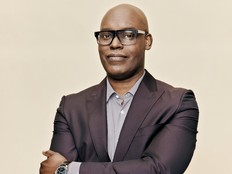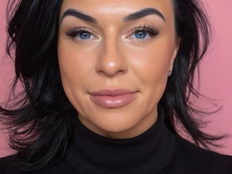FTC presses Zuckerberg to admit he bought Instagram to ‘neutralize’ it

Article content
Meta CEO Mark Zuckerberg struggled in federal court Tuesday to defend his reasons for the Facebook owner’s $1 billion purchase of Instagram more than a decade ago – one of two acquisitions the Federal Trade Commission now contends was illegally anticompetitive.
FTC lawyer Daniel Matheson repeatedly pressed Zuckerberg to explain several internal messages he sent to other Facebook executives about a potential purchase of Instagram in 2012 indicating that he wanted to “neutralize” a competitor at a time when he thought his own company’s efforts to build a competing photo app were faltering.
During their combative exchange, Matheson presented Zuckerberg with internal communications about the potential Instagram acquisition in which the CEO is seen identifying Instagram’s superior photo capabilities as well as its rapidly growing network of users.
Zuckerberg sought to characterize those discussions as part of a larger “buy vs. build” analysis Meta was undertaking across the social media ecosystem, while admitting that acquiring a company “inherently means taking it off the market.”
The FTC first sued Facebook – now subsumed under parent company Meta – in 2020, arguing that it illegally acquired WhatsApp and Instagram as part of a larger strategy to buy and crush up-and-coming rivals. The agency contended that the social media giant’s acquisitions caused the company to invest less in making Facebook a better product, while depriving users of other, more vibrant social media app options.
The FTC’s lawsuit is the latest effort by antitrust regulators to rein in the power of dominant Silicon Valley firms. Big Tech critics have argued that major internet platforms have become monopolies, throttling competition from new upstarts in the market and harming consumer choice.
If U.S. District Judge James E. Boasberg sides with the FTC, Meta could be forced to divest itself of Instagram and WhatsApp, which have helped the company build a massive digital advertising business and laid the groundwork for its investments in artificial intelligence. Instagram is expected to represent slightly more than half of the company’s revenue from the American market in 2025, according to analytics firm eMarketer.
Matheson repeatedly sought Tuesday to compel Zuckerberg to confirm his own written analysis of why it was important to the company to buy Instagram. In one case, the lawyer presented the chief executive with a chain of messages he exchanged with another Meta executive, David Ebersman, in February 2012, weeks before the company bought Instagram.
“[What] I’ve been thinking about recently is how much we should be willing to pay to acquire mobile app companies like Instagram and Path that are building networks that are competitive with our own,” Zuckerberg wrote. He agreed when Ebersman asked whether he wanted to “neutralize a potential competitor.”
During a contentious exchange in court, Matheson said that in the run-up to the Instagram purchase, Zuckerberg never wrote that his motivation was “improving Instagram” but often did write that “a motivation for the acquisition was a rapidly growing, threatening new network.”
“I’m not sure [what] the full mess of what I wrote” was, Zuckerberg said.
The FTC contends that Zuckerberg agreed to buy Instagram as Facebook’s own efforts to build a stand-alone camera app, code-named Snap, were struggling.
Matheson asked if it was fair to say Zuckerberg would have preferred that the Facebook camera app “would have grown quickly enough so that you didn’t have to buy Instagram for $1 billion?”
“I guess so,” Zuckerberg said. “A billion dollars is very expensive.”
The FTC argues that Meta holds a monopoly over the “personal social networking” market, which the agency has defined as apps that allow people to maintain relationships with their friends and family. The government argues that the ephemeral messaging app Snapchat is Meta’s next-biggest competitor. Meta has countered that it competes with a broader array of companies, including TikTok, YouTube and X.
Matheson pressed Zuckerberg on whether those apps are aimed primarily at connecting people with their friends and family. Zuckerberg said some of them might not market themselves that way but do allow users to discover content there that they later share with personal contacts.
Asked by Meta’s lawyer, Mark Hansen, whether he had heard the term “personal social networking” before the FTC’s complaint, Zuckerberg said no.
The agency also faces the obstacle of proving that consumers have been harmed by Meta’s anticompetitive practices, even though Facebook, Instagram and WhatsApp have all remained free to use. The FTC argues that the social media giant compromised the quality of its apps, while Meta says it made significant investments to grow the services.
Matheson pressed Zuckerberg on a 2018 memo he sent to his top executives, including former chief operating officer Sheryl Sandberg, outlining his concerns that Instagram’s growth was cannibalizing Facebook’s. In that document presented in court, Zuckerberg wrote that Facebook users joining Instagram could eventually cause a “network collapse” of Facebook, the “more profitable product.” While the company had already dialed back promotion of Instagram on Facebook, he wondered whether it made more sense to spin out the photo-sharing app as a separate company.
Zuckerberg’s internal messages also cited another potential reason to spin off Instagram: pressure from antitrust regulators.
“As calls to break up the big tech companies grow, there is a nontrivial chance that we will be forced to spin out Instagram and perhaps WhatsApp in the next 5-10 years,” Zuckerberg wrote in 2018.
“While most companies resist break ups … companies actually perform better after they’ve split up,” he added.











Postmedia is committed to maintaining a lively but civil forum for discussion. Please keep comments relevant and respectful. Comments may take up to an hour to appear on the site. You will receive an email if there is a reply to your comment, an update to a thread you follow or if a user you follow comments. Visit our Community Guidelines for more information.